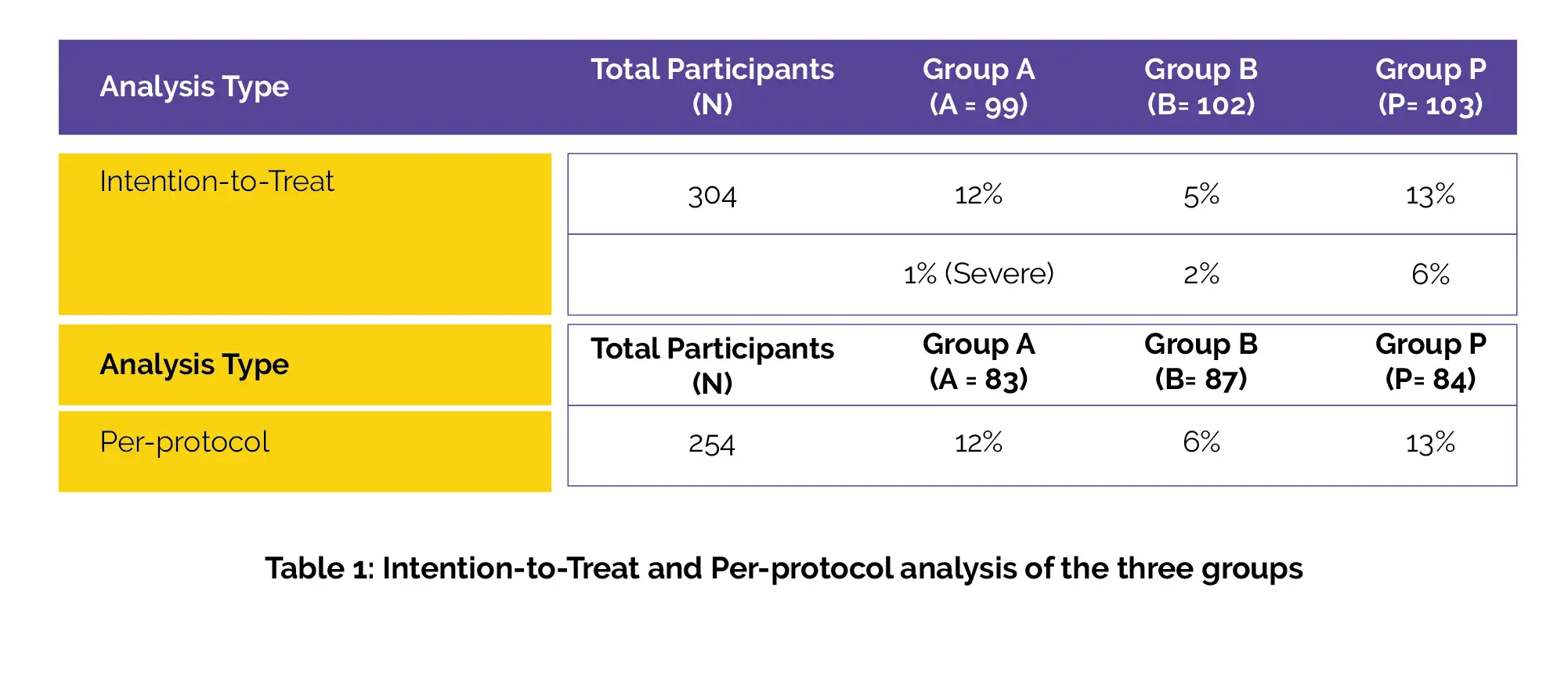Categories
Change Password!
Reset Password!


This randomized placebo-controlled trial aimed to compare the efficacy of ibuprofen and acetazolamide in preventing altitude sickness.
Ibuprofen can be a potential alternative to acetazolamide for relieving headaches and improving altitude sickness prevention when the latter is unsuitable.
This randomized placebo-controlled trial aimed to compare the efficacy of ibuprofen and acetazolamide in preventing altitude sickness.
A total of 443 healthy Asian Indian men, with an average age of 29 (ranging from 20 to 49) years, were randomly assigned to three groups: A, B, and P, at sea level (SL):
These interventions were started one day before ascent and continued for 3 days after reaching an altitude of 3500 m (HA). The Lake Louise Acute Mountain Sickness scale estimated the altitude sickness. Pulse, blood pressure, oxygen saturation and respiratory rate were measured twice every day for the first 2 days at HA during rest, thereafter once every day from 3rd to 6th day at HA.
Of the total people recruited, 139 were unable to be airlifted due to logistical constraints, leaving 304 available for follow-up at HA. Of these, 254 adhered to the protocol for ascent. The occurrence of altitude sickness in different groups as per the intention-to-treat and per protocol analysis has been shown in Table 1:

The relative risk of developing AMS compared to placebo was A-0.96 (p = 0.91), B-0.39 (p = 0.06) by IT analysis, and A-0.94 (p = 0.88), B-0.45 (p = 0.12) by PP analysis.
Ibuprofen demonstrates efficacy in preventing AMS in males during rapid ascent to 3500 m, particularly during the first 2 days of rest. However, acetazolamide outperforms ibuprofen in preventing moderate-to-severe altitude sickness.
Cureus
Ibuprofen Compared to Acetazolamide for the Prevention of Acute Mountain Sickness: A Randomized Placebo-Controlled Trial
Srinivasa Bhattachar et al.
Comments (0)